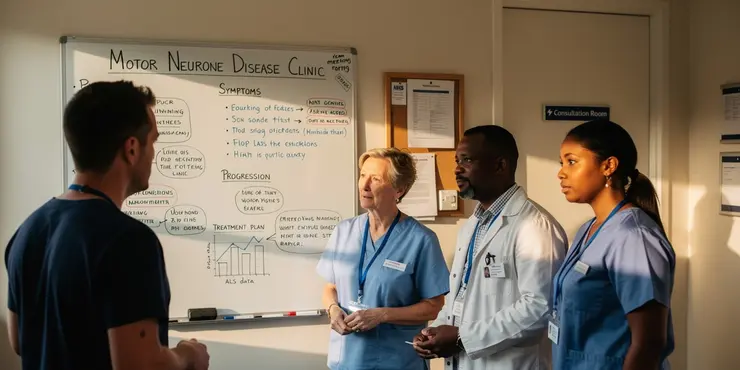
Find Help
More Items From Ergsy search
-
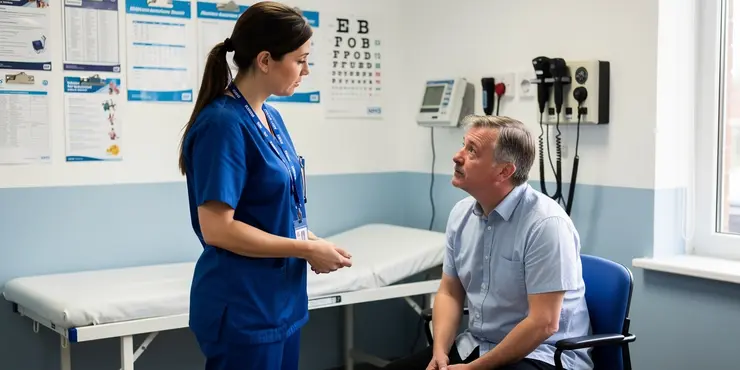
What is motor neurone disease?
Relevance: 100%
-
Is motor neurone disease hereditary?
Relevance: 99%
-

What causes motor neurone disease?
Relevance: 99%
-
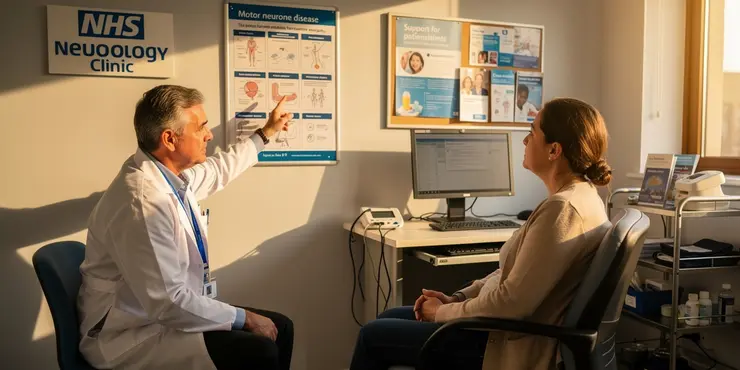
Is there a cure for motor neurone disease?
Relevance: 97%
-
Are there different types of motor neurone disease?
Relevance: 94%
-

What role do genetics play in motor neurone disease?
Relevance: 86%
-

What are the primary symptoms of motor neurone disease?
Relevance: 85%
-
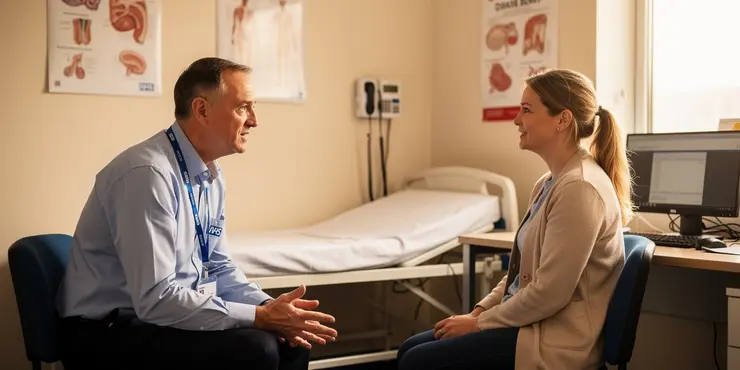
How is motor neurone disease diagnosed?
Relevance: 85%
-

What treatments are available for motor neurone disease?
Relevance: 83%
-

How is breathing affected by motor neurone disease?
Relevance: 82%
-
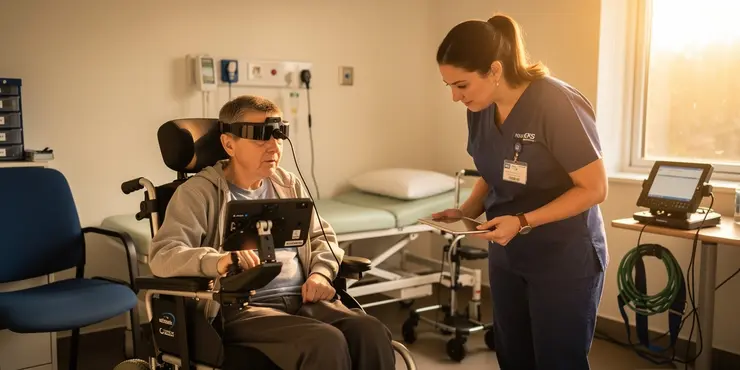
What assistive devices can help people with motor neurone disease?
Relevance: 81%
-
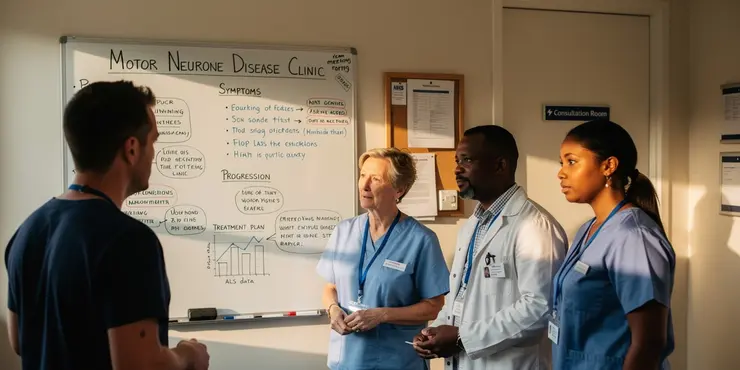
What research is being done on motor neurone disease?
Relevance: 78%
-

Motor neurone disease Julie's story | NHS
Relevance: 78%
-
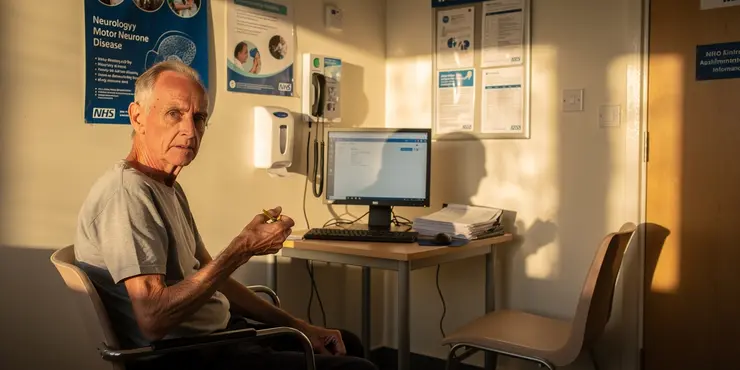
How does motor neurone disease affect the body?
Relevance: 76%
-
How does motor neurone disease affect speech?
Relevance: 76%
-
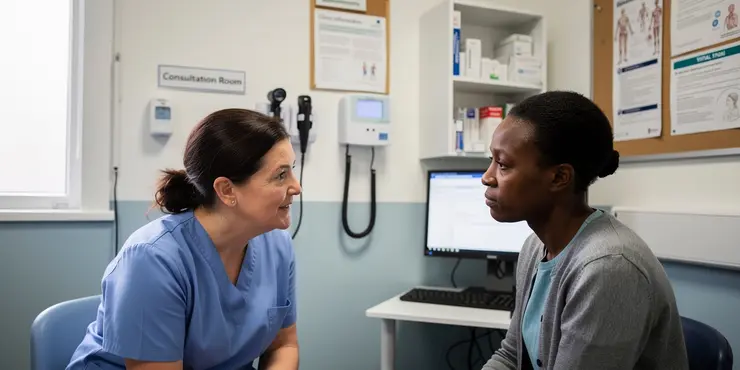
What is the life expectancy after a motor neurone disease diagnosis?
Relevance: 76%
-
Can lifestyle changes impact motor neurone disease progression?
Relevance: 74%
-

How does motor neurone disease impact swallowing?
Relevance: 74%
-

Voice banking service helps people live with motor neurone disease
Relevance: 71%
-

How can caregivers support someone with motor neurone disease?
Relevance: 67%
-
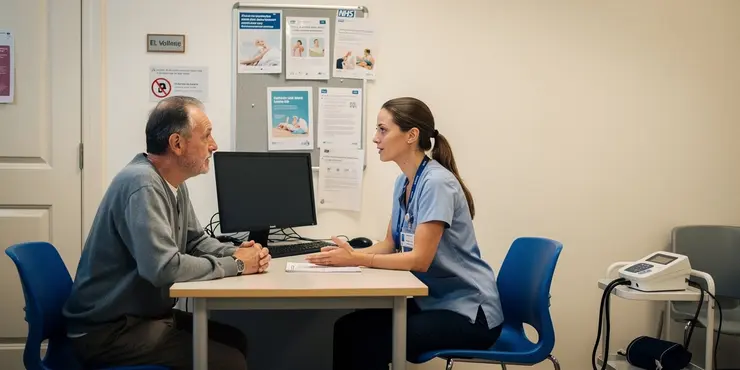
Who is at risk for motor neurone disease?
Relevance: 64%
-

Are there support groups for individuals with motor neurone disease?
Relevance: 64%
-
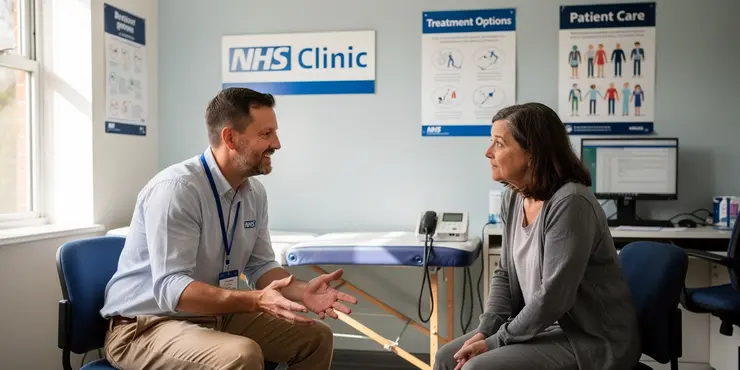
What research is being done on Huntington's disease?
Relevance: 54%
-

What is MND?
Relevance: 44%
-

What research is being conducted on mosquito-borne diseases in the UK?
Relevance: 41%
-
How does Huntington's disease affect movement?
Relevance: 41%
-
What is Parkinson's disease?
Relevance: 40%
-
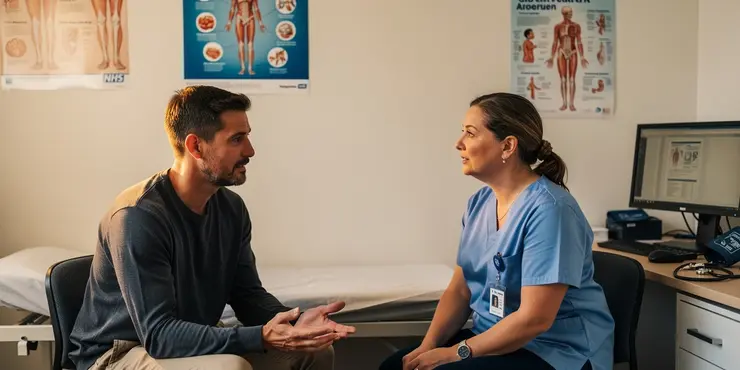
What causes Huntington's disease?
Relevance: 37%
-

Is Huntington's disease fatal?
Relevance: 36%
-

What causes Alzheimer's disease?
Relevance: 32%
-

Can Huntington's disease be cured?
Relevance: 32%
-

Can Huntington's disease be prevented?
Relevance: 32%
-

What global organizations are involved in Nipah Virus research?
Relevance: 30%
-
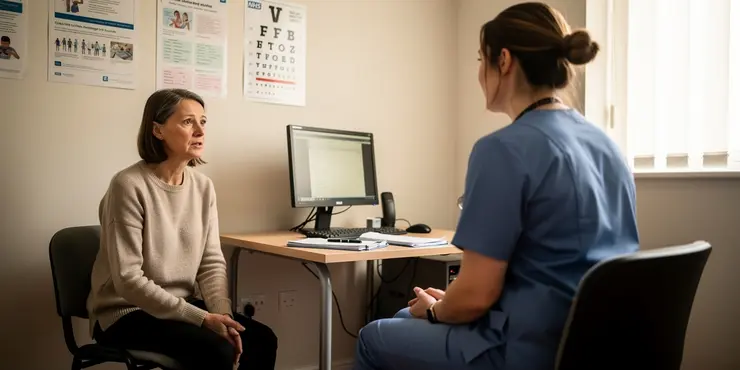
What are the symptoms of Huntington's disease?
Relevance: 30%
-

How significant is the reduction in funding for AIDS, Tuberculosis, and Malaria research?
Relevance: 30%
-
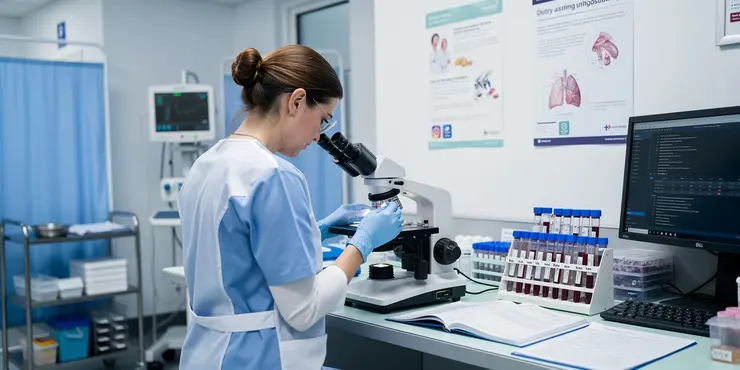
Idiopathic pulmonary fibrosis (IPF) research
Relevance: 30%
-

What research is being done on the Marburg virus?
Relevance: 30%
-
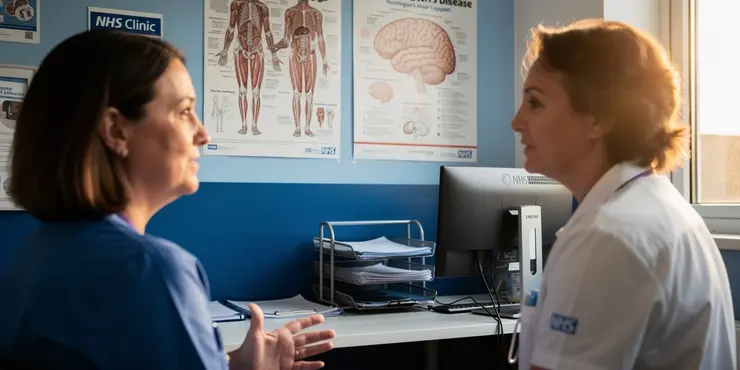
What is Huntington's disease?
Relevance: 29%
-
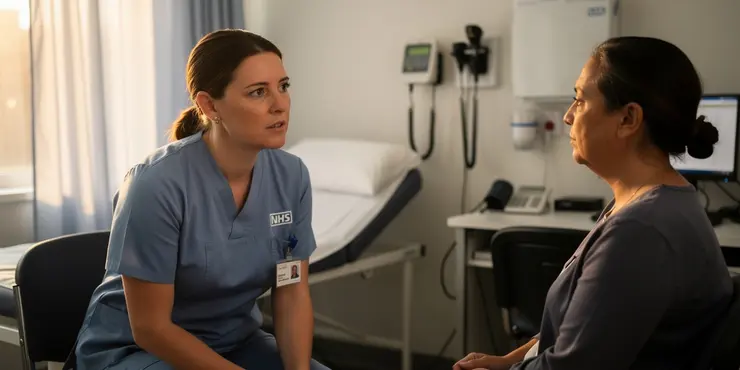
Why is the UK cutting funding to AIDS, Tuberculosis, and Malaria research?
Relevance: 28%
-
Is there research being done on mitochondrial disease?
Relevance: 27%
Overview of Motor Neurone Disease Research
Motor neurone disease (MND), also known as amyotrophic lateral sclerosis (ALS), is a progressive neurodegenerative condition that affects nerve cells in the brain and spinal cord. In the UK, ongoing research aims to understand the causes, develop effective treatments, and ultimately find a cure for this debilitating disease. The research landscape is diverse and multidisciplinary, involving genetics, stem cell technology, drug discovery, and clinical trials.
Genetic Research
Genetic research plays a vital role in understanding motor neurone disease. Scientists are investigating the genetic mutations that contribute to the development and progression of MND. Several genes, such as C9orf72, SOD1, TARDBP, and FUS, have been associated with the disease. Researchers are using advanced genomic techniques to study these genes and understand how genetic variations affect motor neuron health. This research is crucial in identifying individuals at risk and developing targeted therapies.
Stem Cell Research
Stem cell research offers potential avenues for understanding and treating MND. Researchers are using induced pluripotent stem cells (iPSCs) derived from MND patients to model the disease in the laboratory. These models help scientists study the underlying mechanisms of motor neuron degeneration and test new therapeutic approaches. Additionally, there is ongoing research into the possibility of using stem cells to replace damaged motor neurons and restore function.
Drug Discovery and Development
Developing new drugs to treat MND is a high priority in the research community. Scientists are searching for compounds that can protect motor neurons from damage or slow the progression of the disease. There is a focus on repurposing existing drugs, as well as developing novel therapeutics. Clinical trials are critical for testing the safety and efficacy of these potential treatments. Recent trials have investigated the use of drugs like sodium phenylbutyrate, edaravone, and tofersen.
Clinical Trials and Collaborations
Clinical trials are essential for translating laboratory findings into real-world treatments. In the UK, several clinical trials are underway, exploring various aspects of MND management and treatment. Collaboration between research institutions, hospitals, and pharmaceutical companies is key to advancing the field. The MND Association, a prominent UK charity, plays a significant role in funding research and supporting clinical trials.
Future Directions
The future of MND research is promising, with scientists exploring innovative approaches such as gene therapy and personalized medicine. Advances in technology, such as CRISPR gene editing, offer new possibilities for correcting genetic mutations. Furthermore, the integration of artificial intelligence and machine learning in research is accelerating the discovery of new patterns and potential therapeutic targets.
Overview of Motor Neurone Disease Research
Motor neurone disease (MND), also called ALS, is a serious illness that damages nerve cells in the brain and spine. In the UK, scientists are working hard to understand what causes MND, find treatments, and one day cure it. They study many things like genes, stem cells, and new medicines. They also test new treatments in people.
Genetic Research
Studying genes helps us learn about MND. Scientists look at changes in genes that might cause MND. They study special genes like C9orf72 and SOD1. By understanding these genes, scientists can find out who might get MND and develop treatments just for them.
Stem Cell Research
Stem cells can help us learn about and treat MND. Scientists can make stem cells from people with MND to study the disease. These cells help scientists see why motor neurons get sick and try out new treatments. Researchers are also looking at how to use stem cells to fix damaged nerves.
Drug Discovery and Development
Finding new medicines for MND is very important. Scientists look for drugs that can help protect nerves or slow down the disease. They study both old and new drugs. Before these drugs can be used, they must be tested in clinical trials to make sure they work well and are safe for people.
Clinical Trials and Collaborations
Clinical trials test new treatments to see if they work. In the UK, many trials are happening to find better ways to treat MND. Different groups like universities, hospitals, and drug companies work together. The MND Association helps by giving money and support for these trials.
Future Directions
The future of MND research looks hopeful. Scientists are trying new ideas like fixing genes and personalizing medicine for each person. New tools like CRISPR can change genes to fix them. Technology like AI helps scientists find new patterns in their research. This could lead to better treatments for MND.
Frequently Asked Questions
Useful Links
This website offers general information and is not a substitute for professional advice.
Always seek guidance from qualified professionals.
If you have any medical concerns or need urgent help, contact a healthcare professional or emergency services immediately.
Some of this content was generated with AI assistance. We’ve done our best to keep it accurate, helpful, and human-friendly.
- Ergsy carfully checks the information in the videos we provide here.
- Videos shown by Youtube after a video has completed, have NOT been reviewed by ERGSY.
- To view, click the arrow in centre of video.
- Most of the videos you find here will have subtitles and/or closed captions available.
- You may need to turn these on, and choose your preferred language.
- Go to the video you'd like to watch.
- If closed captions (CC) are available, settings will be visible on the bottom right of the video player.
- To turn on Captions, click settings .
- To turn off Captions, click settings again.
More Items From Ergsy search
-

What is motor neurone disease?
Relevance: 100%
-
Is motor neurone disease hereditary?
Relevance: 99%
-

What causes motor neurone disease?
Relevance: 99%
-

Is there a cure for motor neurone disease?
Relevance: 97%
-
Are there different types of motor neurone disease?
Relevance: 94%
-

What role do genetics play in motor neurone disease?
Relevance: 86%
-

What are the primary symptoms of motor neurone disease?
Relevance: 85%
-

How is motor neurone disease diagnosed?
Relevance: 85%
-

What treatments are available for motor neurone disease?
Relevance: 83%
-

How is breathing affected by motor neurone disease?
Relevance: 82%
-

What assistive devices can help people with motor neurone disease?
Relevance: 81%
-

What research is being done on motor neurone disease?
Relevance: 78%
-

Motor neurone disease Julie's story | NHS
Relevance: 78%
-

How does motor neurone disease affect the body?
Relevance: 76%
-
How does motor neurone disease affect speech?
Relevance: 76%
-

What is the life expectancy after a motor neurone disease diagnosis?
Relevance: 76%
-
Can lifestyle changes impact motor neurone disease progression?
Relevance: 74%
-

How does motor neurone disease impact swallowing?
Relevance: 74%
-

Voice banking service helps people live with motor neurone disease
Relevance: 71%
-

How can caregivers support someone with motor neurone disease?
Relevance: 67%
-

Who is at risk for motor neurone disease?
Relevance: 64%
-

Are there support groups for individuals with motor neurone disease?
Relevance: 64%
-

What research is being done on Huntington's disease?
Relevance: 54%
-

What is MND?
Relevance: 44%
-

What research is being conducted on mosquito-borne diseases in the UK?
Relevance: 41%
-
How does Huntington's disease affect movement?
Relevance: 41%
-
What is Parkinson's disease?
Relevance: 40%
-

What causes Huntington's disease?
Relevance: 37%
-

Is Huntington's disease fatal?
Relevance: 36%
-

What causes Alzheimer's disease?
Relevance: 32%
-

Can Huntington's disease be cured?
Relevance: 32%
-

Can Huntington's disease be prevented?
Relevance: 32%
-

What global organizations are involved in Nipah Virus research?
Relevance: 30%
-

What are the symptoms of Huntington's disease?
Relevance: 30%
-

How significant is the reduction in funding for AIDS, Tuberculosis, and Malaria research?
Relevance: 30%
-

Idiopathic pulmonary fibrosis (IPF) research
Relevance: 30%
-

What research is being done on the Marburg virus?
Relevance: 30%
-

What is Huntington's disease?
Relevance: 29%
-

Why is the UK cutting funding to AIDS, Tuberculosis, and Malaria research?
Relevance: 28%
-
Is there research being done on mitochondrial disease?
Relevance: 27%


